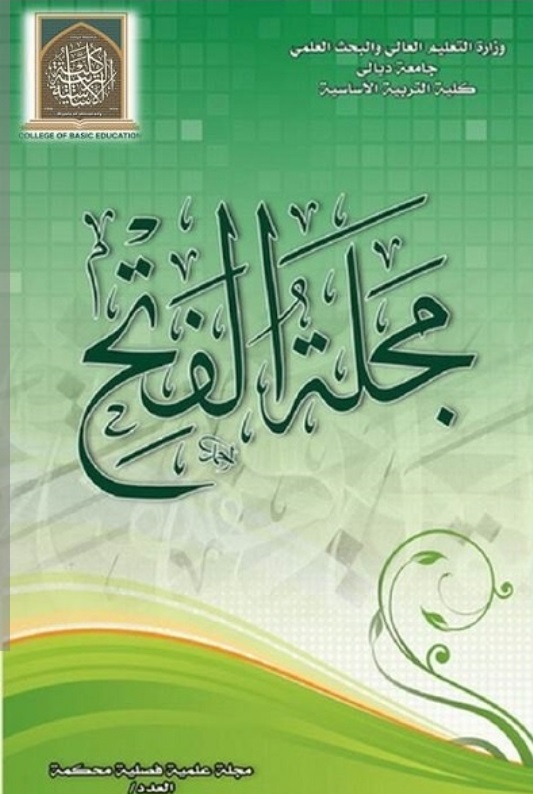وظيفة الاستخلاف وتراكم رأس المال في النظام الاقتصادي الإسلامي
الكلمات المفتاحية:
الاستخلاف - النظام الاقتصادي الاسلامي - رأس المالالملخص
يشكل الاساس الحقوقي للمجتمعات الركن الاساس في البناء الاقتصادي ، فمن خلاله يستطيع الافراد تنظيم نشاطهم الاقتصادي وبما يتوافق مع الاساس الحقوقي الذي يؤمنون به ويتبعونه ، لذا نجد المجتمع اليبرالي يسعى على الدوام الى رعاية الحرية الخاصة واحترام الملكية الفردية من اجل الوصول الى مستويات الاستخدام الامثل للموارد المادية والبشرية عبرمقولتي الابتكار والاحتكار ، بينما نجد المجتمع الاشتراكي يسعى على الدوام الى رعاية الحرية الاجتماعية واحترام الملكية الاجتماعية وصولا الى مستويات الاستخدام الامثل للموارد المالية والبشرية عبر الاقتصاد المخطط والمسيطر عليه مركزيا من قبل الدولة .
اما الاساس الحقوقي الذي تعتمده المجتمعات الاسلامية والعربية على وجه الخصوص فانه يعاني من ضبابية وعدم وضوح الرؤية لانه يرتبط بمؤسسة الحكم ونظرتها الى الاساس الحقوقي لمجتمعاتها . لذا في الاعم الاغلب تختار مؤسسة الحكم الشكل الذي يناسب مصالحها الخاصة اولا ثم مصلحة مجتمتعاتها ثانيا وهي متارجحة بين رعاية الملكية الخاصة اوالعامة .
ان الاساس الحقوقي للمجتمعات الاسلامية والعربية من الواجب ان يمر عبر مقولة الاستخلاف باعتبار ان الاستخلاف هو المقولة الانسانية الاكثر تميزا في المجتمع الاسلامي وهو المقولة القادرة في الحفاظ على الهوية الاسلامية مع الاخذ بالمتغيرات العالمية في المناهج الاقتصادية ، اذ ان جوهر الاستخلاف هو عمارة الارض والتي اودع الله فيها كل مايحتاجه الانسان مادامت السماوات والارض .
تتضح ثمرة نظرية الاستخلاف عند النظر الى المشكلة الاقتصادية والتي يحددها الفكر الليبرالي بمقولة الندرة ، فالزيادة السكانية لاتتناسب عم التطور الحاصل في الموارد المادية مما يحصل بسببه فارق كبير بين المورد البشري والمورد المادي وان الحل يمن في محاولة الاقلال من عدد السكان وتنظيم النسل وزيادة الانتاج وايجاد المجتمع الاستهلاكي والذي اوصل الى شيوع مفهم الاقتصاد الحر العابر للقارات .
يحدد الفكر الاشتراكي المشكلة الاقتصادية بمقولة التناقض بين شكل الانتاج الاجتماعي وشكل التوزيع الفردي ، وان الحل يكمن في شيوع مفهوم الملكية الاجتماعية والذي بدوره يوصل الى الاقتصاد المخطط القادر على ازاحة الاحتكار .
اما الفكر الاقتصادي الاسلامي فانه حدد المشكلة الاقتصادي بعدها مشكلة ثنائية الابعاد تتحد في سوء استغلال المورد المادي وكذلك في سوء التوزيع . لان مفهوم الندرة يصطدم بقوله تعالى ((ولقد مكناكم في الارض وجعلنا لكم فيها معايش )) وقوله تعالى (( ومامن دابة في الارض الا على الله رزقها ويعلم مستقرها ومستودعها كل في كتاب مبين )) وقوله تعالى (( اليس الله بكاف عبده )) اما حصر الملكية بالملكية الاجتماعية لغرض التخلص من سوء التوزيع فهو يميت الدافع الفردي وهو عنصر لايمكن اغفاله في اية عملية اقتصادية لمخالفته للفطرة الانسانية .
تنطلق معالجات القكرالفكرالاقتصادي الاسلامي من خلال تفعيل وزيادة تراكم راس المال لان تراكم راس المال يعني زيادة في الاستثمار والزيادة في الاستثمار تؤدي الى تنمية بشرية ومادية في اقتصاد عابر للقارات منضبط بمفهوم الاستخلاف من اجل الحفاظ على الجانب الاخلاقي والعقائدي للاقتصاد الاسلامي .
ان اختيارنا لبيان وظيفة الاستخلاف وتراكم راس المال في النظام الاقتصادي الاسلامي الغاية منه بيان مدى التطابق في المنظورالفني بين الاقتصاد الاسلامي والاقتصادات الوضعية الاخرى ، ومدى افتراق الاقتصاد الاسلامي عن الاقتصادات الوضعية في الجانب العقائدي والاخلاقي .
ضم البحث ثلاثة مطالب جاء الاول منها بعنوان الاستخلاف ، وجاء الثاني بعنوان تراكم راس المال ، فيما كان المطلب الثالث بعنوان النظام الاقتصادي الاسلامي ، ثم اردفنا البحث بخاتمة ضمت ابرز النتائج والتوصيات . ومن الله التوفيق .
المراجع
الرأسمالية الناشئة ، احمد جامع ، دار المعارف ، مصر ، 1388 - 1968 .
محاسبة التكاليف ، مفيد القصير ، مؤوسسة المعارف الفنية ، بغداد ، 1399 - 1979 .
التنزيلات
منشور
كيفية الاقتباس
إصدار
القسم
الرخصة

هذا العمل مرخص بموجب Creative Commons Attribution 4.0 International License.
حقوق النشر والترخيص
تطبق مجلة الفتح للبحوث التربوية والنفسية ترخيص CC BY (ترخيص Creative Commons Attribution 4.0 International). يسمح هذا الترخيص للمؤلفين بالاحتفاظ بملكية حقوق الطبع والنشر لأوراقهم. لكن هذا الترخيص يسمح لأي مستخدم بتنزيل المقالة وطباعتها واستخراجها وإعادة استخدامها وأرشفتها وتوزيعها ، طالما تم منح الائتمان المناسب للمؤلفين ومصدر العمل. يضمن الترخيص أن المقالة ستكون متاحة على نطاق واسع بقدر الإمكان وأن المقالة يمكن تضمينها في أي أرشيف علمي.
لمزيد من المعلومات، يرجى متابعة الرابط: https://creativecommons.org/licenses/by/4.0/.



